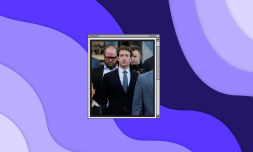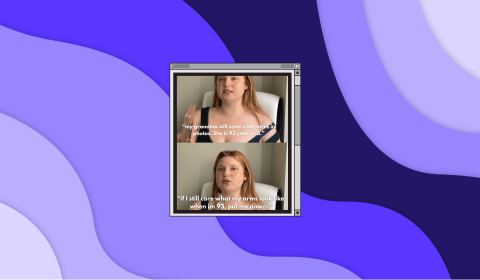The rigid and overtly traditional business of law is subtly being reshaped by Gen Z lawyers and law students. Billable hours and a culture of overworking are ebbing away in many organisations, as work-life balance and an emphasis on personability come into play.
![]()
The business of law is serious for a reason, but is there room to make the industry lighter and less reticent for workers and clients alike? Gen Z lawyers and aspiring professionals reckon so.
It’s no secret by now that, entering the workforce off the back of a global pandemic, Gen Z sees work-life balance and emotional wellbeing as not just core values, but non-negotiables when choosing a career. That doesn’t mean to say the generation is timidly limiting themselves to industries that fit this mould, however.
The business of law is about as traditional and by-the-book (quite literally) as you’ll find. Yet, that hasn’t deterred Gen Zers from chasing roles as young barristers or solicitors. On the contrary, the cohort is determined to reform the industry’s overall culture to be more approachable for clients, and less arduous for professionals. Sounds a long shot, doesn’t it? But they’re making it work.
In the UK especially, young lawyers are aiming to educate people on their rights and cut through complex definitions to help them better understand convoluted legalities. The habitual realm of social media (like always) is playing a massive role, with the term ‘lawfluencers’ coined to describe the next, fresh-faced wave of law buffs appearing on YouTube, TikTok, and LinkedIn.
We’ve already seen doctors and dentists utilise short-form video to give advice, and lawyers are now springing up in the same way, answering hypothetical questions and directing young people on how best to use the legal system for their benefit.
The growing influence of these professional creators is already huge, with data showing social media campaigns on topics like criminal justice and student loan relief are getting far more attention than traditional media coverage. There’s no real surprise, either. Grassroots online advocacy is something digital natives abide by.
If you’re keen to see the sort of content we’re talking about, search ‘lawfluencers’ on TikTok for UK civilian rights on issues to do with housing, police powers, stop and search procedure, and many other topics.
The use of social media is just the outward projection of Gen Z’s influence, though. Behind closed doors, young solicitors and barristers are subtly reforming the values of big traditional institutions. Social responsibility remains a central tenet, but not to the mental and emotional determinant of practitioners.
Young people want to retire the nose to the grindstone approach, promoting changes like flexible work schedules and ‘no-email’ weekends. There’s also a palpable demand for mental health support – something that has been distinctly absent within the current establishment – reflecting what we know about the generation’s desire for collaborative workspaces where emotional intelligence is just as important as technical proficiency.
Several UK law firms have already revised their working models to be more in line with Gen Z preferences, opting for open communication, flexible hours, respect for boundaries, and on-hand mentorship. As expected, however, there are many that dispute assertions that these changes will lead to a more positive and productive work environment.
Aaron Baer, a partner at Renno & Co, is a vocal critic of the changing landscape, calling Gen Z lawyers ‘soft and entitled.’ A roundtable discussion in the Law Society Gazette also highlighted tension between generations, with senior lawyers expressing concern at Gen Z’s alleged inability to take on criticism and loathing of rigid work schedules.
Despite the natural opposition, changes are taking place. Plenty of firms are recognising Gen Z’s desire for time and balance over massive salaries is genuine. While pigeonholing is a slippery slope, a general consensus is that it’s the moral responsibility of senior lawyers to be flexible themselves and pave the way for future generations of lawyers. There’s enough proof already that they stand to benefit from doing so.
Father time slows for no one. Time to get on TikTok!
See also:




















